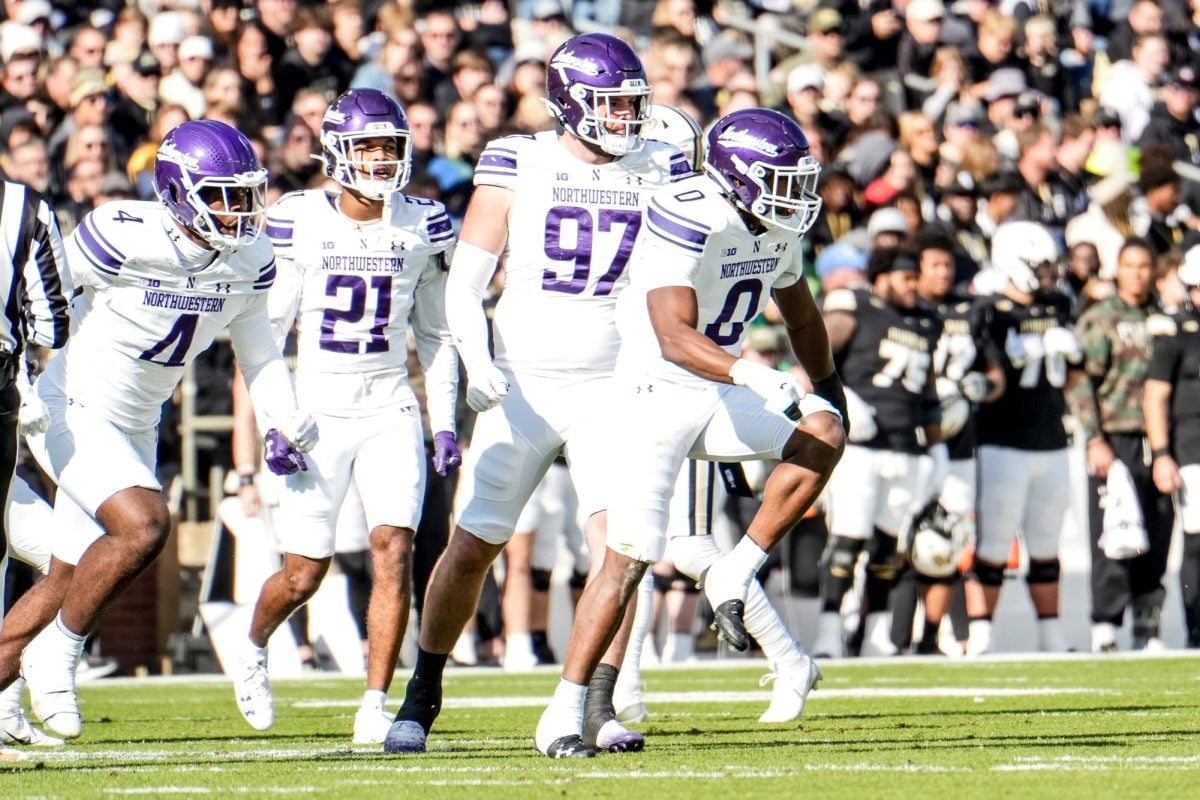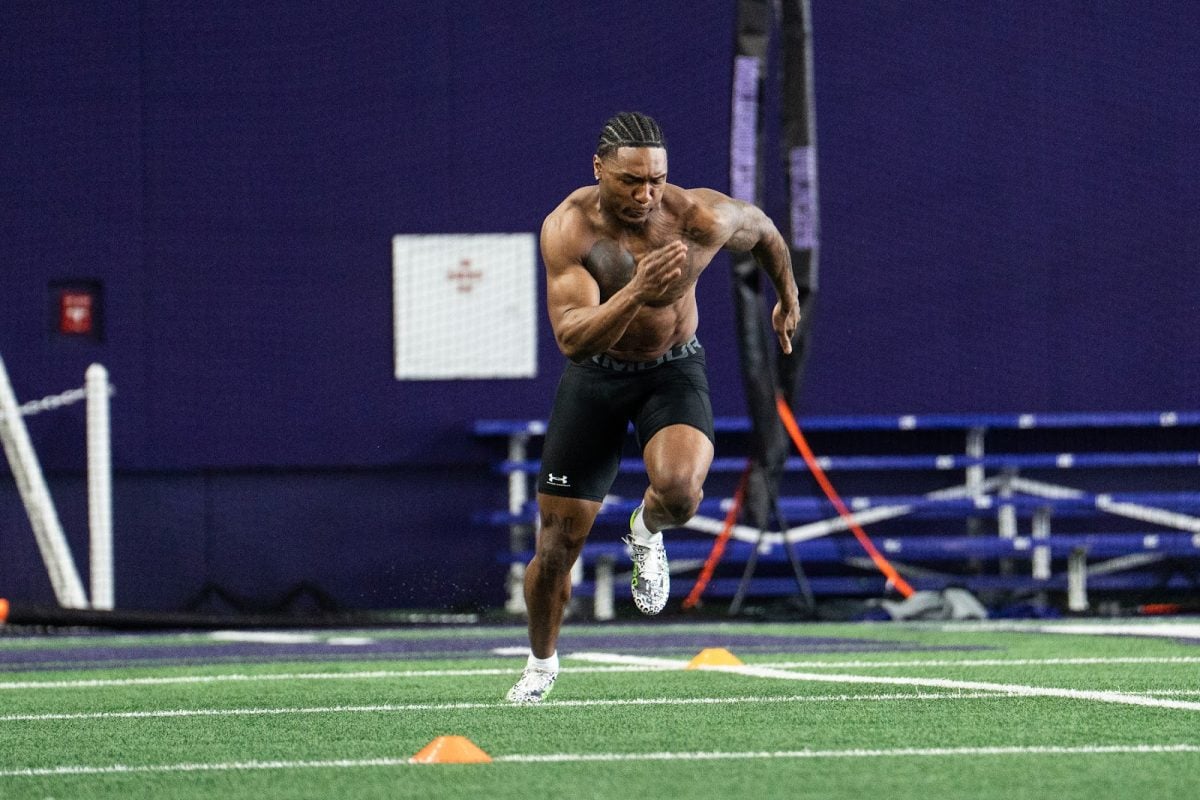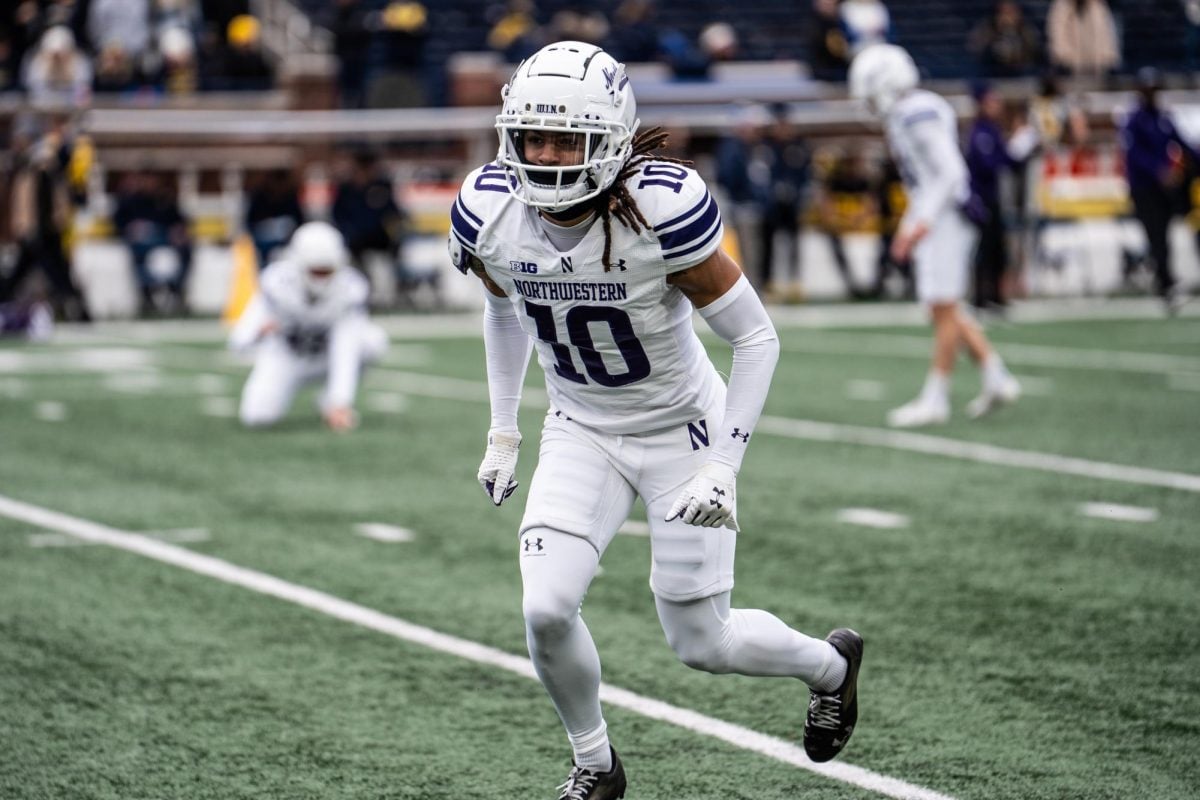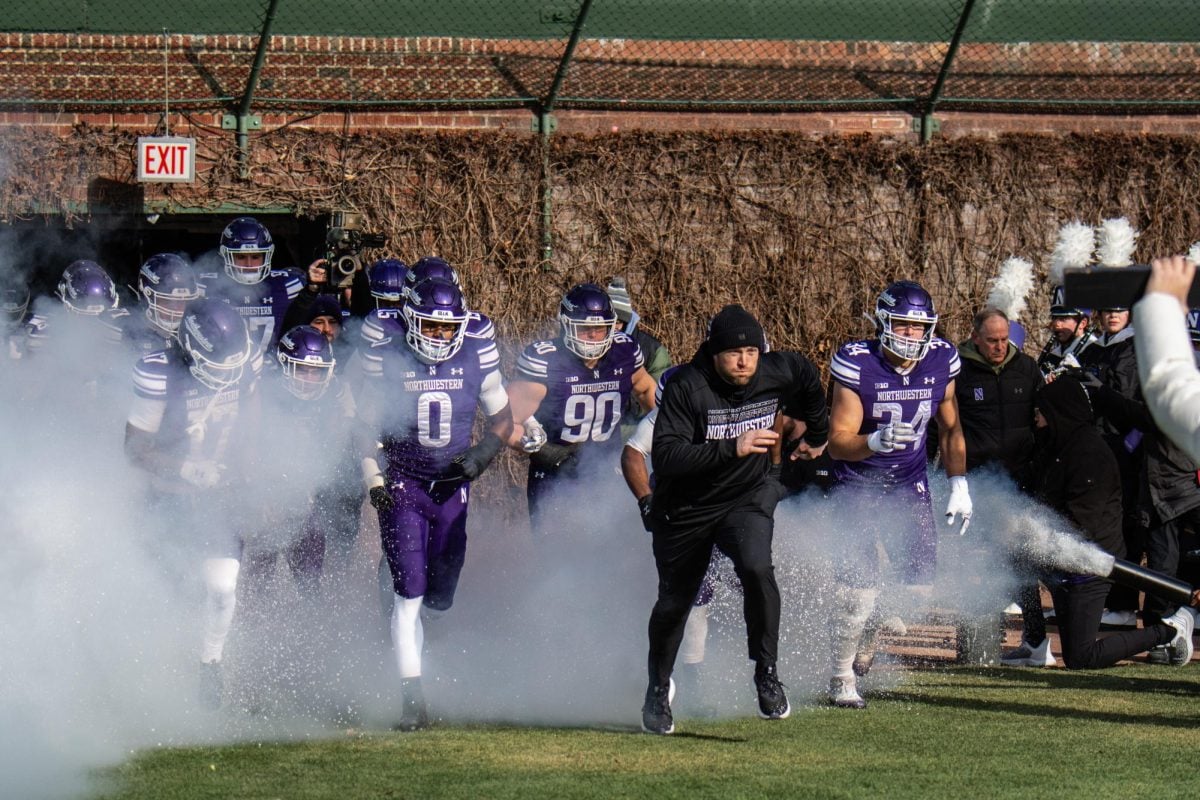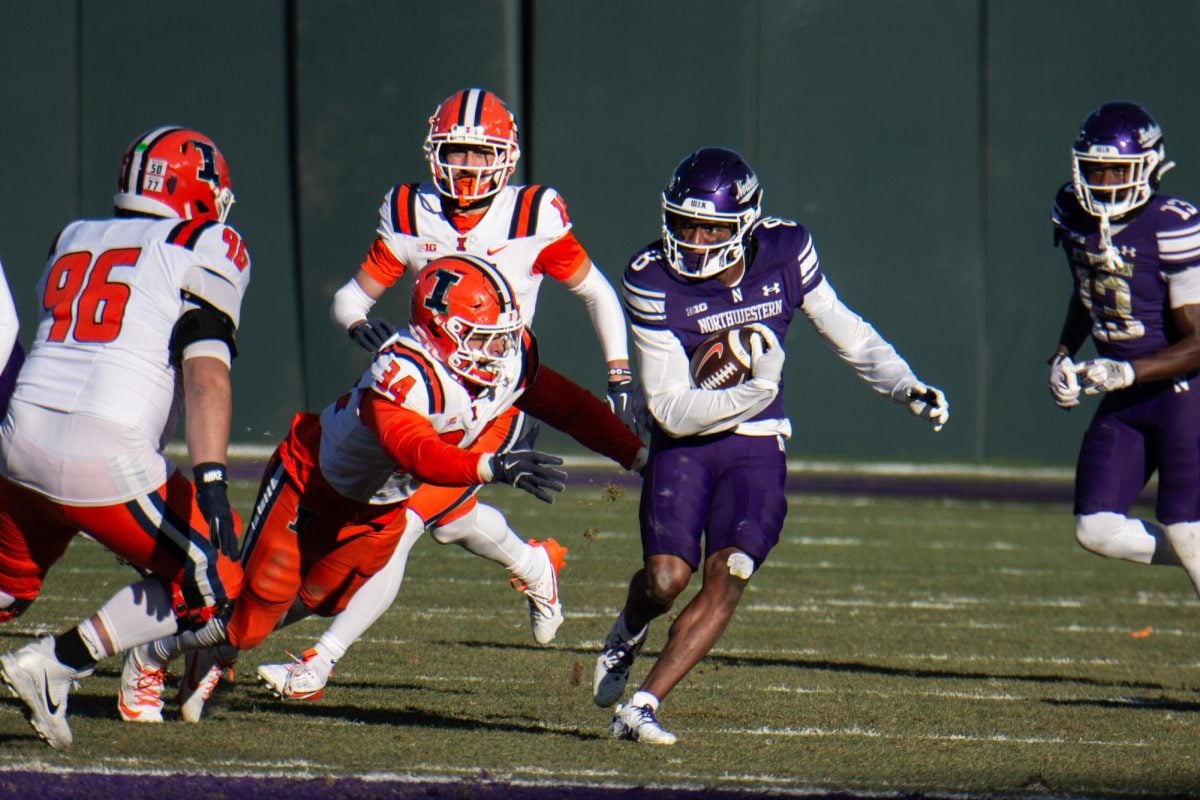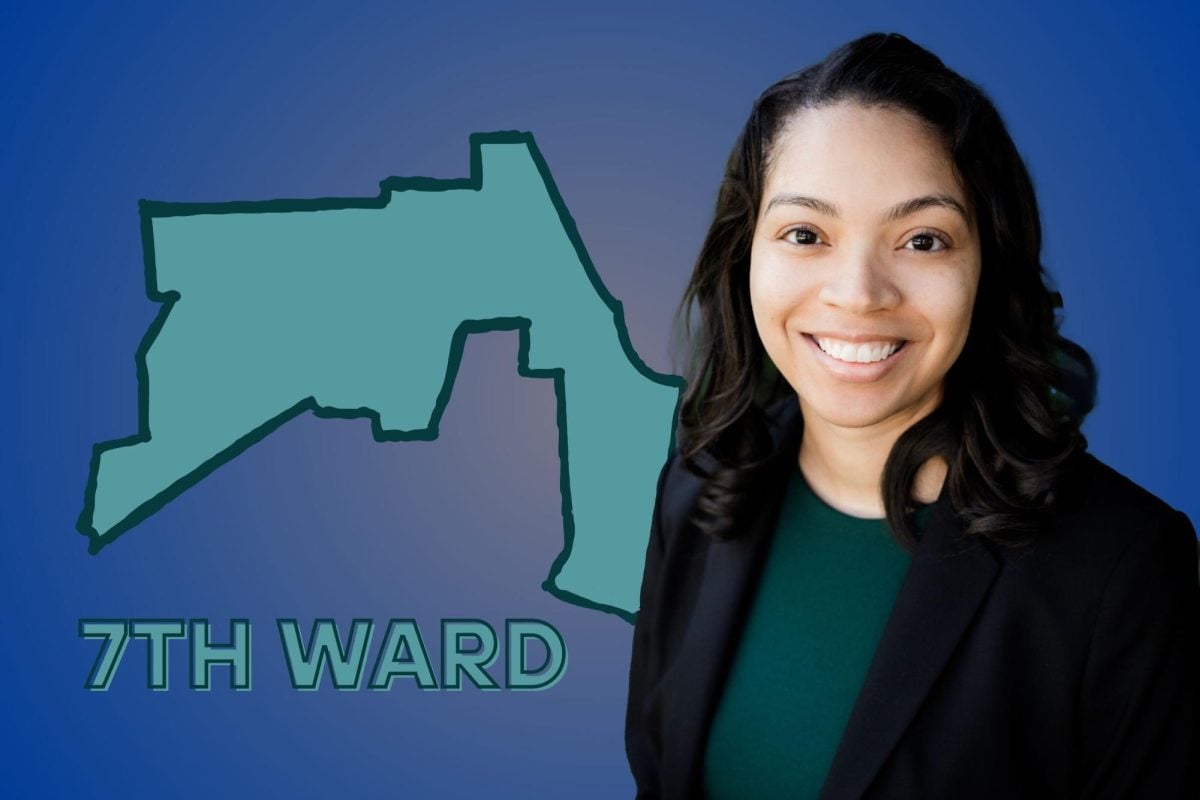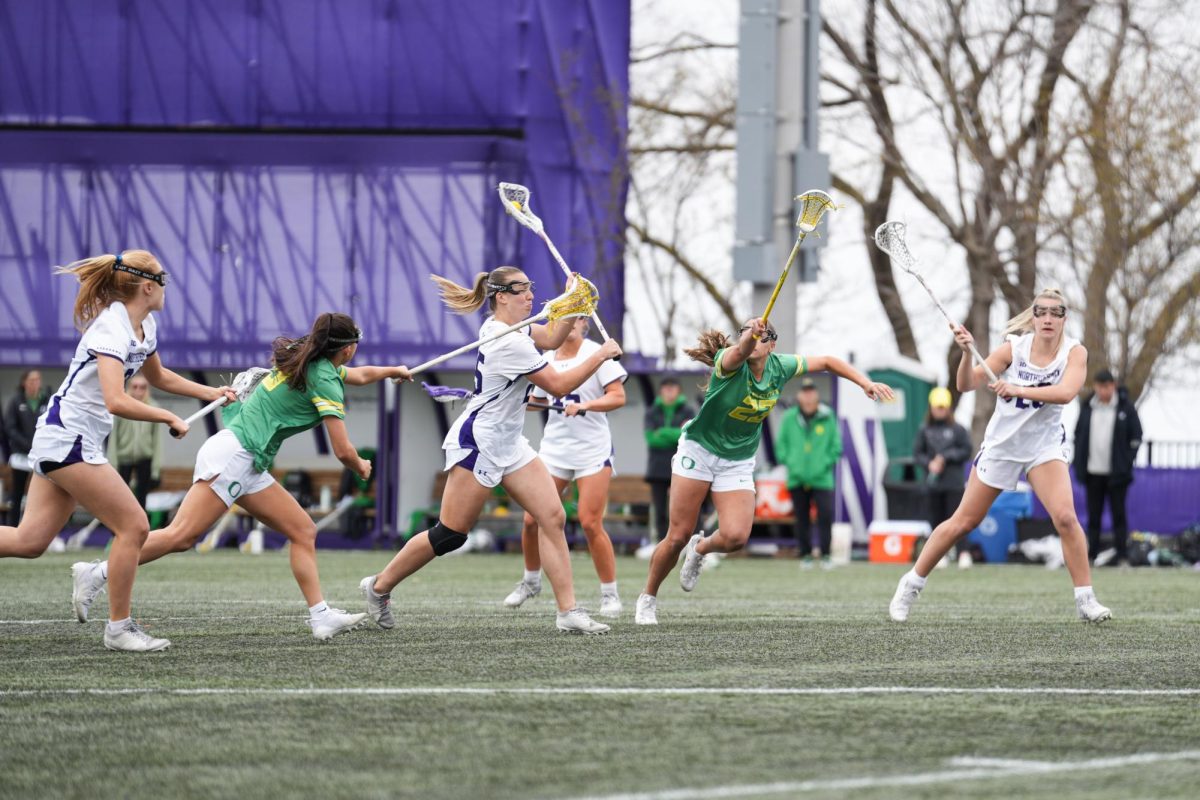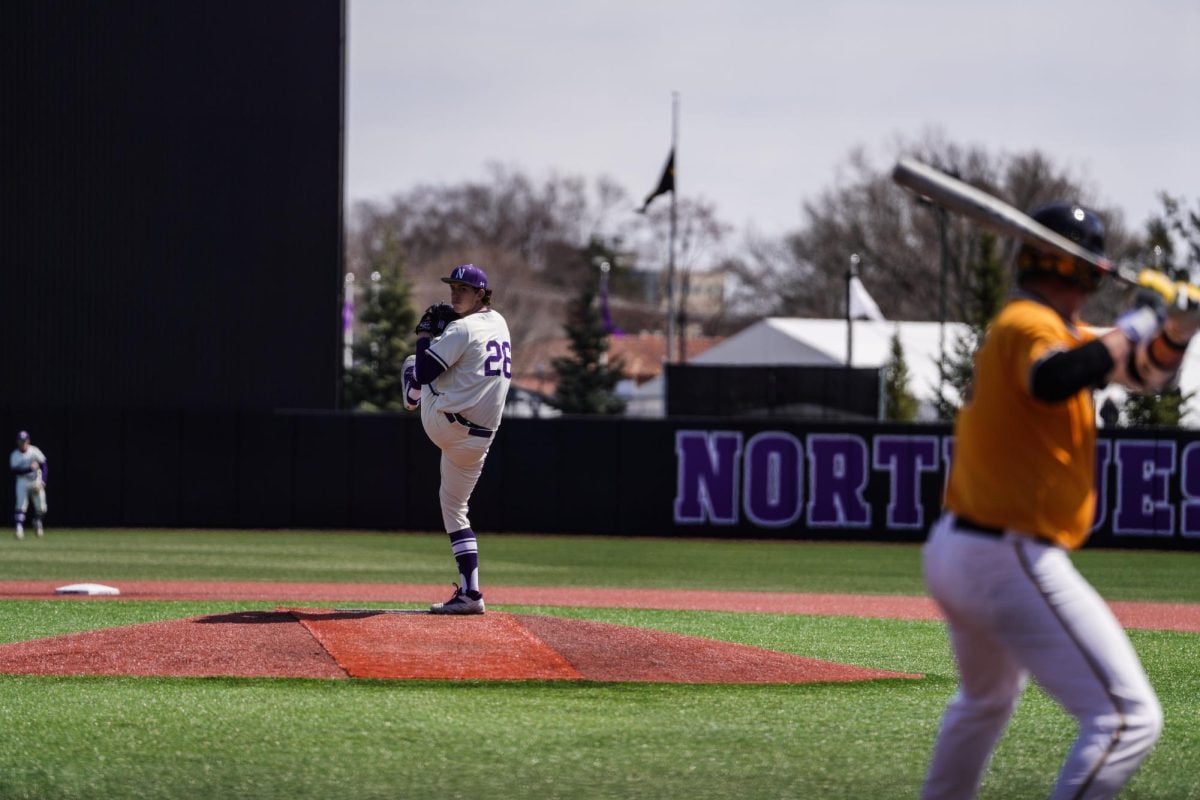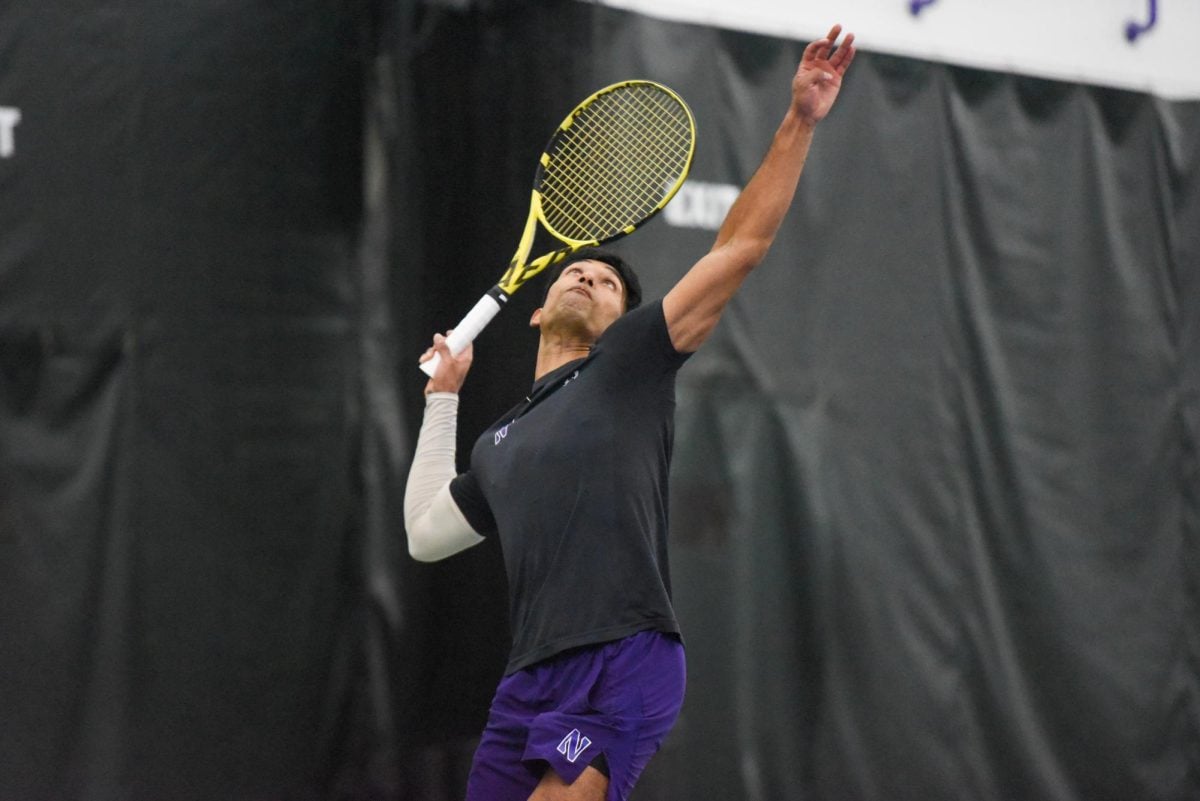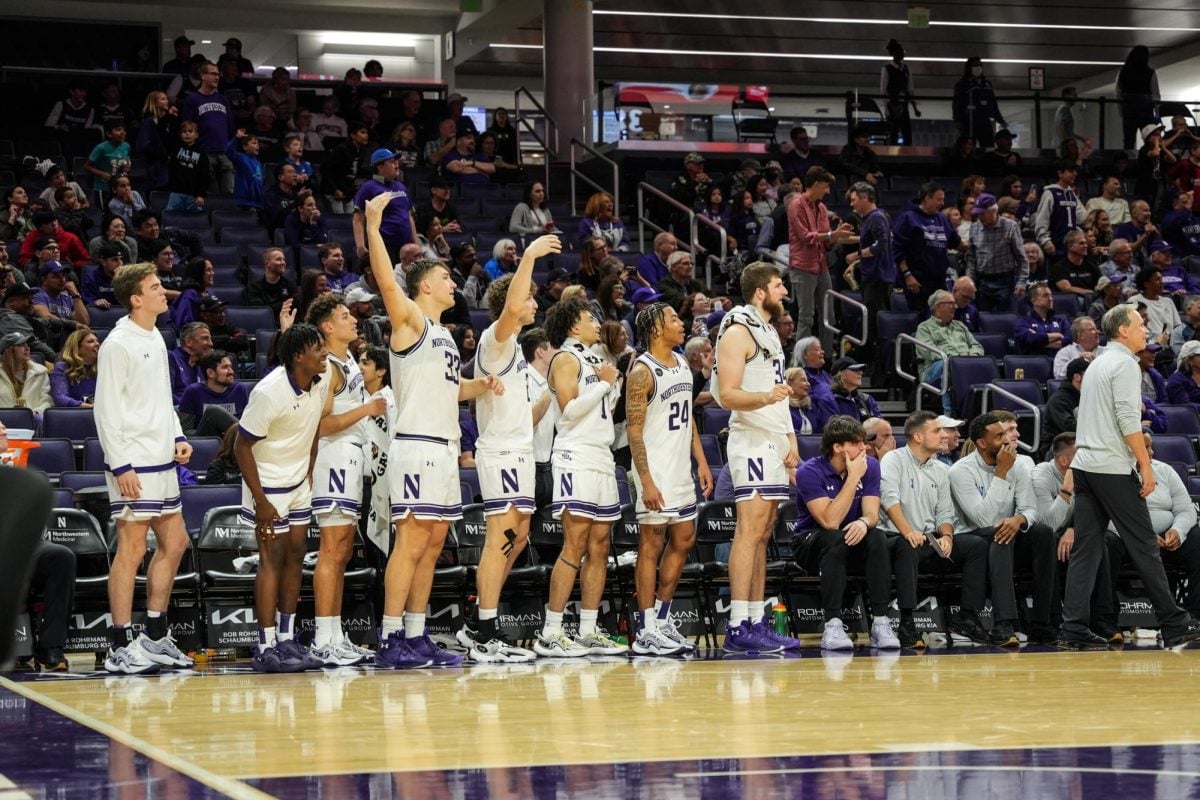After taking on one of the toughest jobs in college football last season, Harlon Barnett was on the hunt for a new gig. Barnett, who spent two decades at Michigan State, found an unlikely home as the assistant head coach and safeties coach at Northwestern.
In September of 2023, Mel Tucker was fired from Michigan State’s head coach position, and the longtime Spartan Barnett stepped in as the interim head coach, leading the team to a 2-8 record during his tenure.
At the end of the season, however, Barnett found himself interviewing with a team to which he had little association. Regardless, he felt a special connection with coach David Braun, who’d filled similar shoes as an interim coach last season.
“I told (Braun) this, when I first came here: ‘I feel our spirits connect,’” Barnett said. “I told my wife, too, actually, ‘I feel like Northwestern is the place out of the two that I’ve gone to.’”
Barnett also interviewed for a job at Wisconsin, and, when the Badgers went in another direction, he came to Evanston.
The Wildcats’ safeties coach carries a decorated pedigree of experience in the football world. Barnett started playing football in the third grade. Barnett said he has been involved in football every year except one since he was 8-years-old.
“I loved the sport. I loved the contact and the violence part of the sport,” Barnett said. “That’s what drew me to it. I just can’t get enough.”
***
A Cincinnati native, Barnett starred at Princeton High School. Led by legendary coach Pat Mancuso, Barnett won the 1983 state title in his junior year.
Beyond being a good player, Barnett was a player respected by coaches and teammates, Mancuso said.
“Harlon was probably one of my favorite young men,” Mancuso said. “He qualified as a young man … in the classroom, in the locker room, in his community. He was just a pleasure to coach.”
Barnett’s time as a Princeton High School Viking eventually came to an end, and he began his journey as a Spartan.
Barnett was a four-year letter winner as a defensive back. In his senior year, he tallied three interceptions, one pick-six and 73 tackles en route to garnering All-American honors.
Mancuso said he never questioned Barnett’s ability to get to the collegiate level and succeed there.
“It wasn’t difficult for us to help Harlon go to the next level because he had so much going for him in terms of his academics, athletics and being the type of young man he was in high school,” Mancuso said.
In 1990, Barnett was selected in the fourth round of the NFL draft by the Cleveland Browns. After spending three seasons in Cleveland, he spent two with the New England Patriots and two with the Minnesota Vikings.
Throughout his career, Barnett said the prospect of becoming a coach followed him.
“I’m a Christian man, so I feel like God was trying to talk to me then, but I wasn’t listening,” Barnett said. “Bill Parcells said to me in 1994 on an off day, ‘You ever think about coaching?’ … The very next year I go to the Minnesota Vikings, Tony Dungy is the defensive coordinator. And randomly, ‘You ever think about coaching?’”
***
Barnett retired from the NFL after the 1996 season and went back to Princeton High School in 1998, this time as a coach.
Barnett, however, had always wanted to try his hand at broadcasting. He earned his degree in communication from Michigan State and had enrolled in broadcasting school during his second offseason in Cleveland.
An important phone call gave him the opportunity to pursue the craft. A phone call from seven-time national champion football coach Nick Saban pushed Barnett toward reporting after retirement.
Their tenures at Michigan State overlapped when Barnett was a player. When Saban dialed Barnett’s number, he was the Spartans’ head coach.
After speaking with Saban, Barnett reached out to a school sports information director and became the sideline reporter for Michigan State football on the radio.
For the final two years of Saban’s tenure with the Spartans, Barnett coached high school football at Princeton High School during the week and left on the weekends to be the sideline reporter.
Barnett moved on from sideline reporting when coach Saban left Michigan State for LSU. He began to start coaching at Princeton High School full-time.
During Barnett’s five-season tenure at Princeton, he spent two seasons as the secondary coach and three years as the defensive coordinator.
Scott Miltenberger was head coach of Princeton High School while Barnett was defensive coordinator. Barnett’s greatest strength was connecting with the students, Miltenberger said.
“His strongest point at that time was that the kids trusted him, and he put onto them that how much he cared about them,” Miltenberger said. “They really trusted him from what he did with them, other than just football.”
***
After five seasons back at Princeton High School, Barnett pursued his options at the collegiate level. He called a few coaches he knew, but he ultimately landed on Saban’s staff.
Barnett left his family in Cincinnati and went down to Baton Rouge as a graduate assistant for the year, where the Tigers won the 2004 BCS National Championship.
Sure enough, Barnett got his break. Mark Dantonio hired him as the secondary coach at Cincinnati the following season. In his first season, the Bearcats led Conference USA in pass defense and ranked 26th in the country.
In 2007, Dantonio became the head coach at Michigan State, and Barnett followed him. From 2007 to 2017, Barnett got the opportunity to return to his alma mater, taking on the roles of secondary coach, assistant head coach, co-defensive coordinator and associate head coach during that stint.
“It was great to be able to go back there and do that and help and have a lot of success,” Barnett said. “It was awesome.”
Barnett moved on after 11 seasons to take advantage of an opportunity to be Florida State’s defensive coordinator, but the experience was not what he thought it was going to be. Two seasons later, Barnett was back in green and white.
The roles he played initially were familiar. He worked as the cornerbacks coach and secondary coach. In 2023, though, he took on a brand-new role: interim head coach.
Barnett took control of the program just two games into the new season.
Barnett was selected for the position over assistant head coaches and coordinators, something he credits to the rapport he built during his tenure in East Lansing. One of the helpful connections he had was with Alan Haller, Michigan State’s athletic director, with whom he played during his time as a Spartan.
“I think (Alan Haller) called me and told me he wanted me to do it out of familiarity with me, knowing who I am,” Barnett said. “I think just because knowing me, knowing how I felt about the program, knowing that I would try to lead them in the right direction.”
In his time as interim head coach, Barnett led the Spartans to Big Ten wins over Nebraska and Indiana. While Barnett’s effort was in an unideal situation, the Spartans went in a different direction when making a permanent hire for head coach.
***
Now in Evanston, Barnett has made a marked impact on a new defensive system.
NU ranks third in the Big Ten in opponent passing yards per game with 241.1 yards, a figure that puts the ’Cats within the top 100 in the country.
“(He is) allowing us to play faster,” junior safety Devin Turner said. “Just allowing us to play like ourselves. … He’s utilizing everybody on the field and not just one person.”
Beyond the results on the football field, Barnett has forged close bonds with the players.
Graduate student safety Coco Azema, a team captain, said he and his teammates have embraced Barnett’s new position as coach. Azema had played under former safeties coach Matt MacPherson during his first five seasons with the program.
“(He is) just a real players’ coach,” Azema said. “I just think that him being able to relate on a level of understanding that he was out there before being able to play the position as well. I feel like that’s helped with the transition, and that bond that we’ve built with him.”
Barnett has kept his spirit of connecting with players on a level beyond football through his religion. With his players, Barnett hosts word of the week and Bible studies.
Turner has enjoyed working with Barnett this season because of off-the-field factors, he said.
“We’ve all really enjoyed it, because he’s not really just all about football,” Turner said. “It’s also life after football. Just getting us ready for families, getting us ready for our careers.”
Through all the years of coaching, Barnett has maintained a great reputation, especially in the eyes of Mancuso.
Mancuso said that he has never and would not question Barnett’s success as a coach.
“If there’s a coach that you would say, ‘I really want my son to play for a coach,’ it would be Harlon,” Mancuso said. “You can say that without batting an eyelash or thinking twice because he’s the type of young man you would want to influence your son to be successful in later life.”
Correction: A previous version featured an inaccurate photo caption. The Daily regrets this error.
Email: annawatson2027@u.northwestern.edu
X: @adub_sports
Related Stories:
— Football: Northwestern’s Jack Lausch prepares for first Wrigley Field start
— Football: Northwestern set to return to Wrigley Field in homecoming clash with Ohio State
